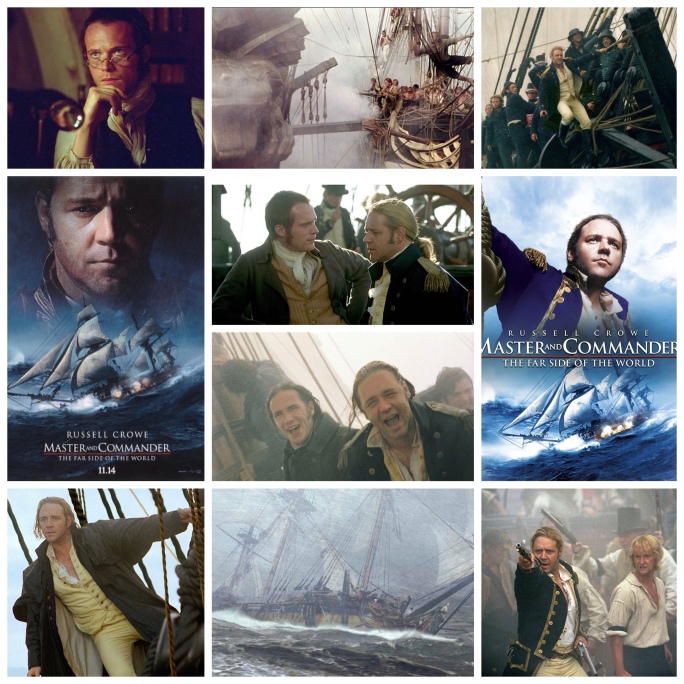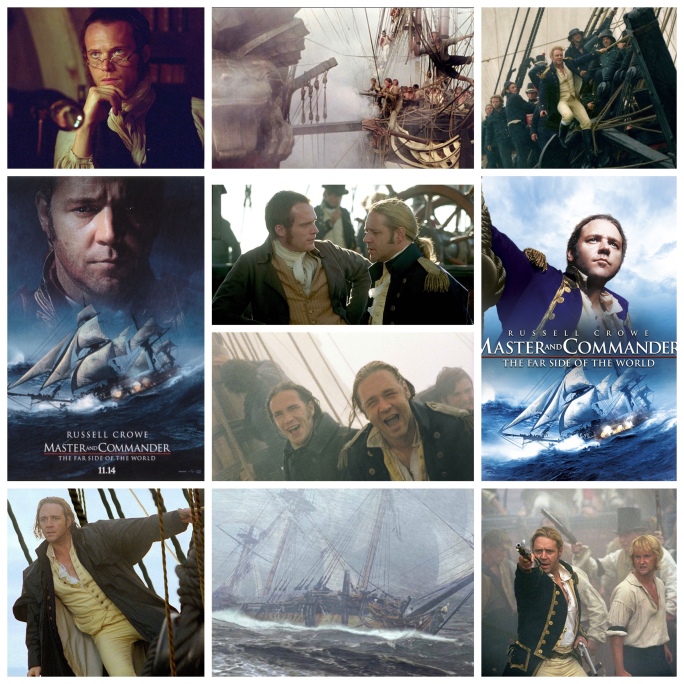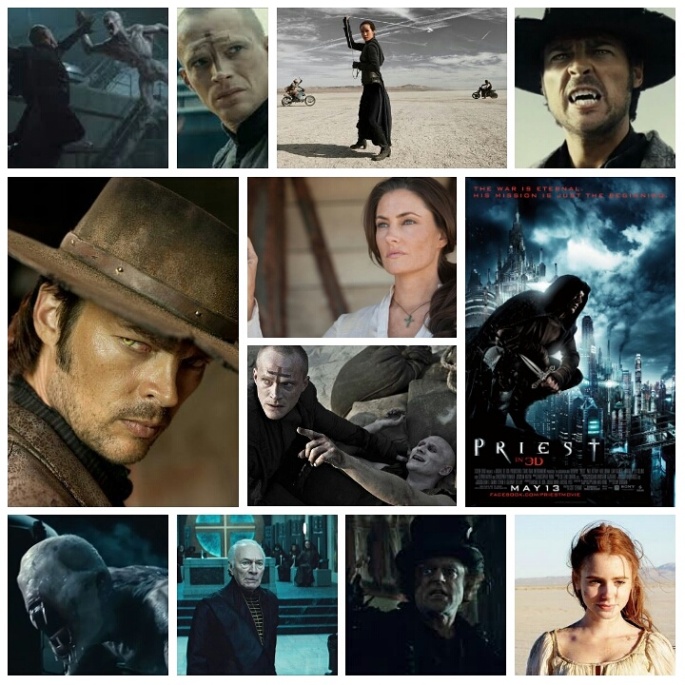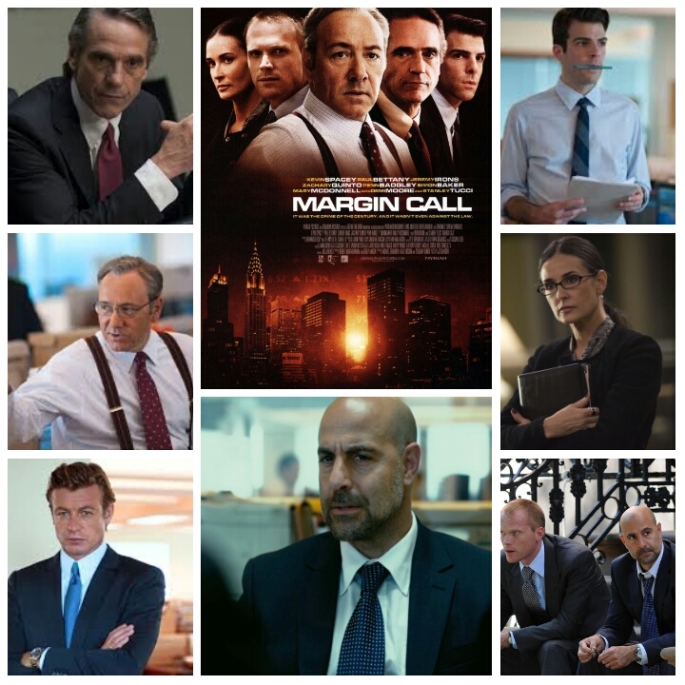
Many war films set in a different time period like to flaunt special effects, production design, pyrotechnics and swing their big budgets around like dicks, while somewhere in the commotion, things like character and story get lost. Peter Weir is one to intuitively avoid showboating and I was pleased to see that his Master & Commander: The Far Side Of The World is a beautiful piece that integrates technical wizardry with good writing and performance for something that feels rich, balanced and realistic.
Set during the Napoleonic wars surrounding South America, Russell Crowe is Captain Jack Aubrey, a Naval Commander tasked with taking his vessel and crew in hot pursuit of the French ship Acheron on a search and destroy mission that could turn the tide of the whole war. Acheron is a much quicker and stronger warship with more guns, but Jack is a cunning, headstrong and impossibly stubborn leader who won’t back down in the face of defeat, even though his crew sometimes shows signs of doubt. The central relationship of the film is between him and the ship’s surgeon Maturin, played by Paul Bettany. He’s a significantly less hard edged man and being Jack’s best friend might as well be first mate as well, but it’s interesting to see that despite a great love for one another, their natures clash. Jack is a pragmatic, no nonsense soldier when it comes to game time, yet has the soul for music duets and great dinner table stories when the guns are put away. Maturin is a would-be naturalist with no mind for the strategies of war who would rather spend his days exploring new species on the exotic Galápagos Islands. Their dynamic is ultimately what drives the film and they’re both fantastic but also supported by the likes of Billy Boyd, Robert Pugh, James D’Arcy and many others.
The film exceeds two hours in length but doesn’t feel like it because of how engaging Weir makes everything. There’s only two ship battles, a opening banger and a climactic peak and they’re brilliantly done but for me the real magic is watching Crowe, Bettany and the others interact and live life day by day on the vessel. The food is prepared in detail, the logistics of navy protocol are studiously shown and the dialogue paints a dense, rich history for all the men aboard, each having his own special part of the story to impart. Another thing Weir specializes in is not making his tales feel overly doom laden, angsty or depressing. Many of his films deal with dark, challenging settings and themes but there’s always this matter of fact, optimistic lens he looks through that is a signature for him and a winning attribute. Not to say that this is necessarily a rollicking swashbuckler, but there’s an affinity for compassion and the lighter side of human nature, despite it being a war film by definition. Huge shoutout to Weir’s go to cinematographer Russell Boyd too, who shoots the imagery so vividly and magically it almost looks like paintings from that era itself. Loved it.
-Nate Hill





